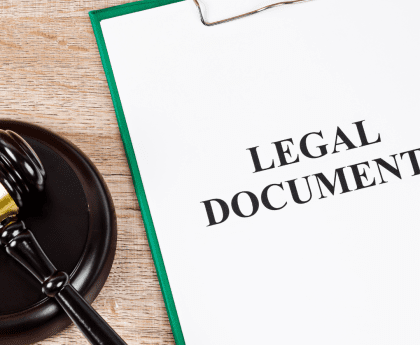FSSAI Registration: Ensuring Food Safety Compliance in India and the UAE
FSSAI Registration Procedure-The Food Safety and Standards Authority of India (FSSAI) stands as a cornerstone in safeguarding the quality and safety of food products within the Indian subcontinent. This comprehensive article delves into the intricacies of the FSSAI Registration process, shedding light on vital aspects such as requisite documents, benefits, penalties, and a comparative analysis of the registration procedures in India and the United Arab Emirates (UAE).
FSSAI Registration Process in India:
Governing Law:
Rooted in the Food Safety and Standards Act, 2006, the FSSAI navigates the Indian food landscape, ensuring adherence to regulations detailed in the Food Safety & Standards (Licensing and Registration of Food Business) Regulations, 2011.
Eligibility Criteria:
Businesses engaged in food-related activities in India must obtain FSSAI Registration or License. The eligibility criteria hinge on factors like turnover, production capacity, and the nature of the food business.
Documents Required:
Embarking on the FSSAI Registration journey in India necessitates the submission of imperative documents. These include a photo of the Food Business Operator, government-issued photo ID, proof of business activity address, and other specifics tailored to the business’s size and nature.
Benefits:
The advantages of securing FSSAI Registration in India are multifaceted. From ensuring legal compliance and elevating food safety standards to building goodwill, fostering consumer awareness, and facilitating business expansion, the benefits are pivotal. The FSSAI logo on food products serves as a hallmark of quality assurance.
Penalties for Non-Compliance:
Non-compliance with FSSAI regulations in India carries severe consequences, including potential imprisonment and fines. Adhering to the prescribed standards becomes imperative for businesses.
FSSAI Registration Procedure in the UAE:
Governing Authority:
In the UAE, oversight of food safety regulations rests with the Emirates Authority for Standardization and Metrology (ESMA) and relevant local authorities in each emirate.
Eligibility Criteria:
Similar to India, businesses involved in food-related activities in the UAE must adhere to stringent food safety regulations. The eligibility criteria are determined by the size and nature of the business.
Documents Required:
For FSSAI Registration in the UAE, businesses may need to furnish documents encompassing business licenses, food safety management systems, and hygiene practices. The specific requirements may vary across emirates.
Procedure:
The procedural steps for FSSAI Registration in the UAE involve meticulous submission of documents to local authorities, aligning with the guidelines set forth by ESMA or the food safety authority of the respective emirate.
Comparative Analysis – India vs. UAE:
Registration Process:
While both nations mandate FSSAI-like registrations, the procedural variance is notable. India operates under a centralized FSSAI framework, whereas the UAE’s process may exhibit slight nuances between emirates.
Documents Requirement:
The documentation requirements, while rooted in similar principles, exhibit disparities based on business size and nature. The UAE, potentially having additional requirements related to business licensing and food safety management, adds a layer of specificity.
Procedure:
The procedural divergence is evident in the online-centric process in India, managed by FSSAI authorities, as opposed to the UAE’s potential requirement for businesses to liaise directly with local food safety authorities, adhering to emirate-specific guidelines.
What is the process for obtaining FSSAI registration?
The process for obtaining FSSAI registration involves filling out an application form, submitting required documents, and paying the necessary fees to the Food Safety and Standards Authority of India (FSSAI). The application can typically be done online through the FSSAI portal or offline through designated offices.
Are there different categories of FSSAI registration, and how do they differ?
Yes, FSSAI offers different categories of registration based on the scale and nature of the food business. These categories include FSSAI Basic Registration, State FSSAI License, and Central FSSAI License. The categorization depends on factors such as turnover, production capacity, and the scope of operations.
What documents are required for FSSAI registration?
The documents required for FSSAI registration vary depending on the category of registration. Generally, documents such as identity proof, address proof, proof of business ownership, food safety management plan, and NOC from the local municipality are commonly required.
How long does the FSSAI registration process typically take?
The duration of the FSSAI registration process can vary depending on factors such as the completeness of the application, the workload of the FSSAI authorities, and the category of registration. Typically, it takes around 7 to 30 days for FSSAI Basic Registration and State FSSAI License, while Central FSSAI License may take longer.
Are there any specific requirements or guidelines to follow during the FSSAI registration procedure?
Yes, there are specific requirements and guidelines set by the FSSAI that need to be followed during the registration procedure. These may include compliance with food safety standards, proper labeling of food products, maintaining hygiene standards in the premises, and adhering to relevant regulations.
What are the fees associated with obtaining FSSAI registration?
The fees associated with FSSAI registration vary depending on the category of registration and the scale of the food business. Basic Registration fees are nominal, while State and Central License fees are higher. The exact fee structure can be found on the FSSAI website or through authorized consultants.
Can you provide guidance on filling out the FSSAI registration application?
Yes, guidance on filling out the FSSAI registration application is available through various sources, including the FSSAI website, online tutorials, and consulting services. It’s important to ensure that all required information is accurately filled out to avoid delays in the registration process.
Are there any inspections or audits involved in the FSSAI registration process?
Yes, FSSAI may conduct inspections or audits of the food business premises to verify compliance with food safety standards and regulations. These inspections may occur before or after the registration is granted to ensure ongoing adherence to food safety requirements.
How frequently do I need to renew my FSSAI registration?
FSSAI registration needs to be renewed periodically to ensure continued compliance with food safety regulations. Basic Registration and State FSSAI License need to be renewed annually, while Central FSSAI License may have a longer renewal period, typically every 1-5 years depending on the category.
What are the consequences of operating a food business without FSSAI registration?
Operating a food business without FSSAI registration can lead to legal consequences, including penalties, fines, and even closure of the business. Additionally, it can damage the reputation of the business and compromise consumer trust due to concerns about food safety and quality. Therefore, it’s essential to ensure compliance with FSSAI regulations.
Conclusion:
FSSAI Registration, a linchpin for food businesses in both India and the UAE, underscores the commitment to global food safety standards. While fundamental principles align, the unique regulatory landscapes of each country necessitate a meticulous approach. Businesses operating across borders must navigate these distinct regulations to ensure not only compliance but also the delivery of safe and high-quality products to consumers.




